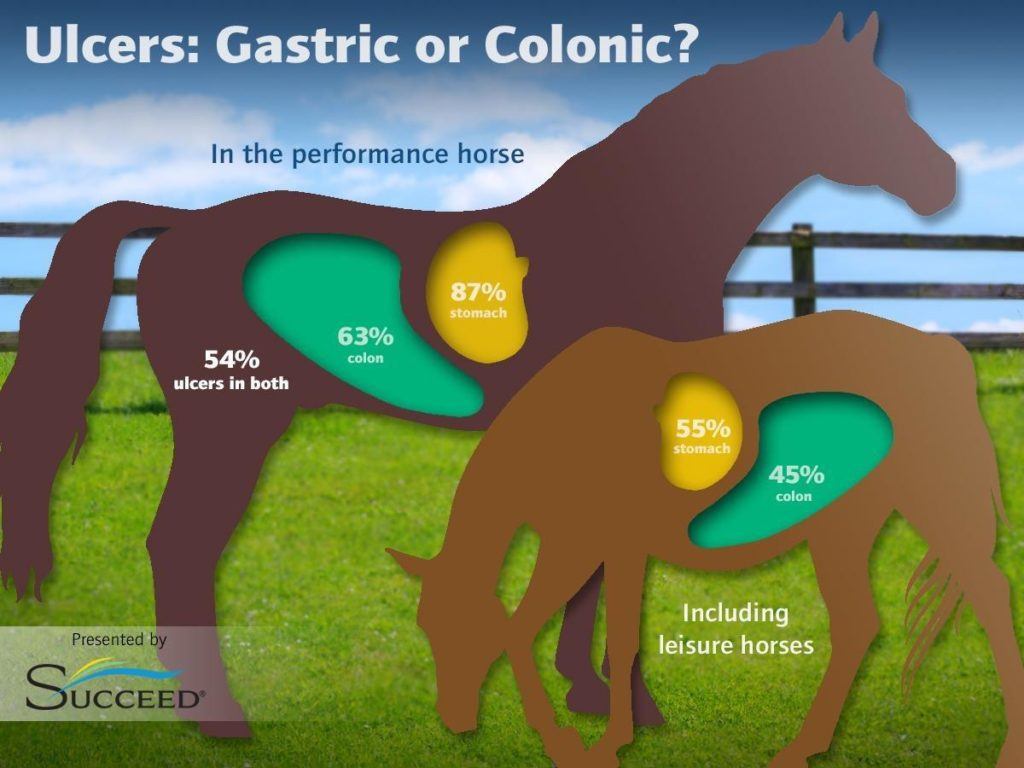Ulcers, colic and other digestive conditions are not just a problem in someone else’s barn – they are likely afflicting horses in yours as well. Competition horses are particularly at risk, and while the effects can be subtle they pose significant challenges to training and performance.
The Ulcer Problem is Widespread
In a study published in the Journal of Equine Veterinary Science, 88% of performance horses were found to have stomach ulcers and 63% had colonic ulcers. Almost all the horses – 97% – had some type of digestive tract ulceration.
With the incidences this high, the chances are good that at least one of your horses is suffering from this condition.

The question then is … which one? And how much better could that horse be if it were healthy?
How Digestive Disease Impacts the Horse
Colic, which is ultimately a symptom of underlying disease, hindgut inflammation, parasitism and other conditions are actually more common in horses than you may think.
- Weight loss
- Poor condition
- Lack of appetite
- Diarrhea
- Intermittent colic
- Lethargy and dullness
- Unwillingness to bend, extend or collect
- Stereotypes such as cribbing or weaving
- Lack of focus
- Intermittent hind end lameness
Individually any of these signs are cause for concern, together they more clearly signal the external impact of digestive distress in the horse. Horses that are less than healthy in their guts suffer in their overall well-being and in their ability to train and perform to their full potential.

